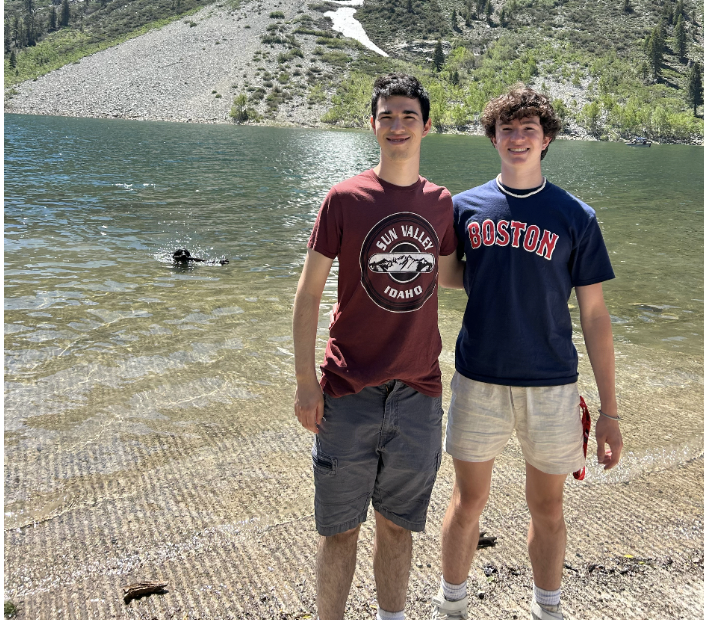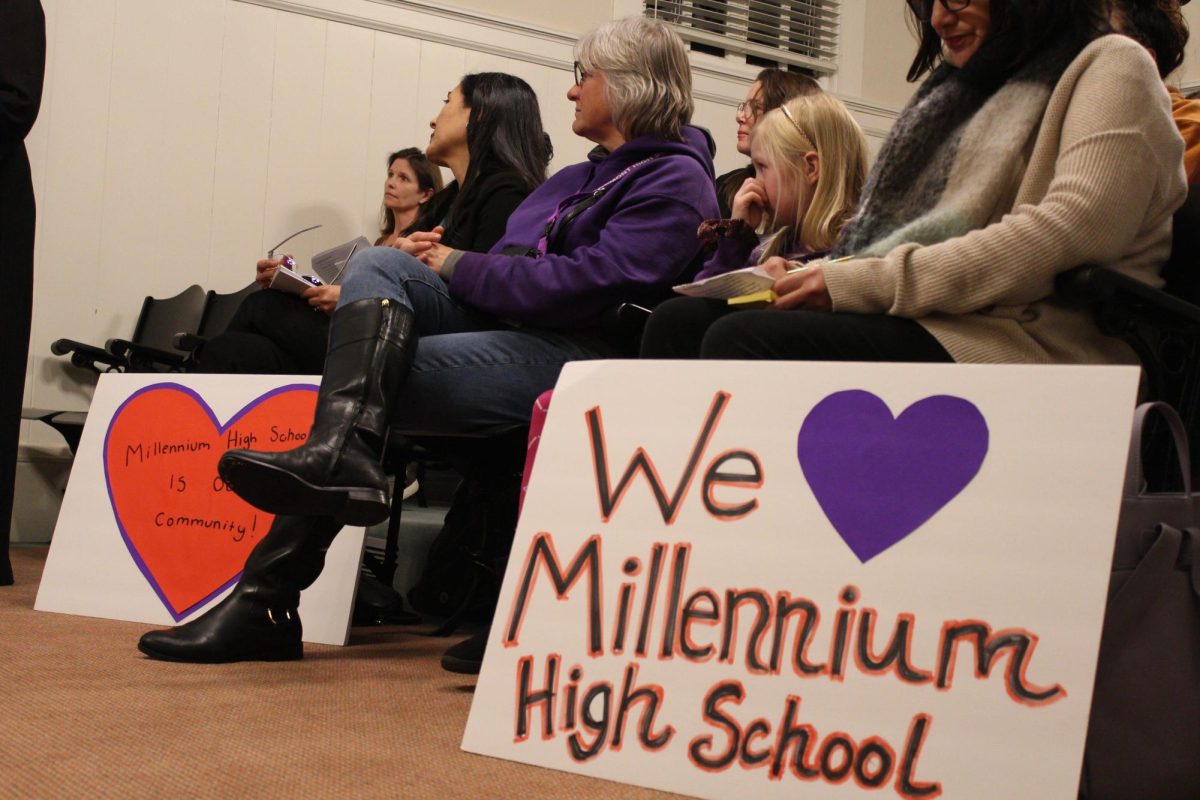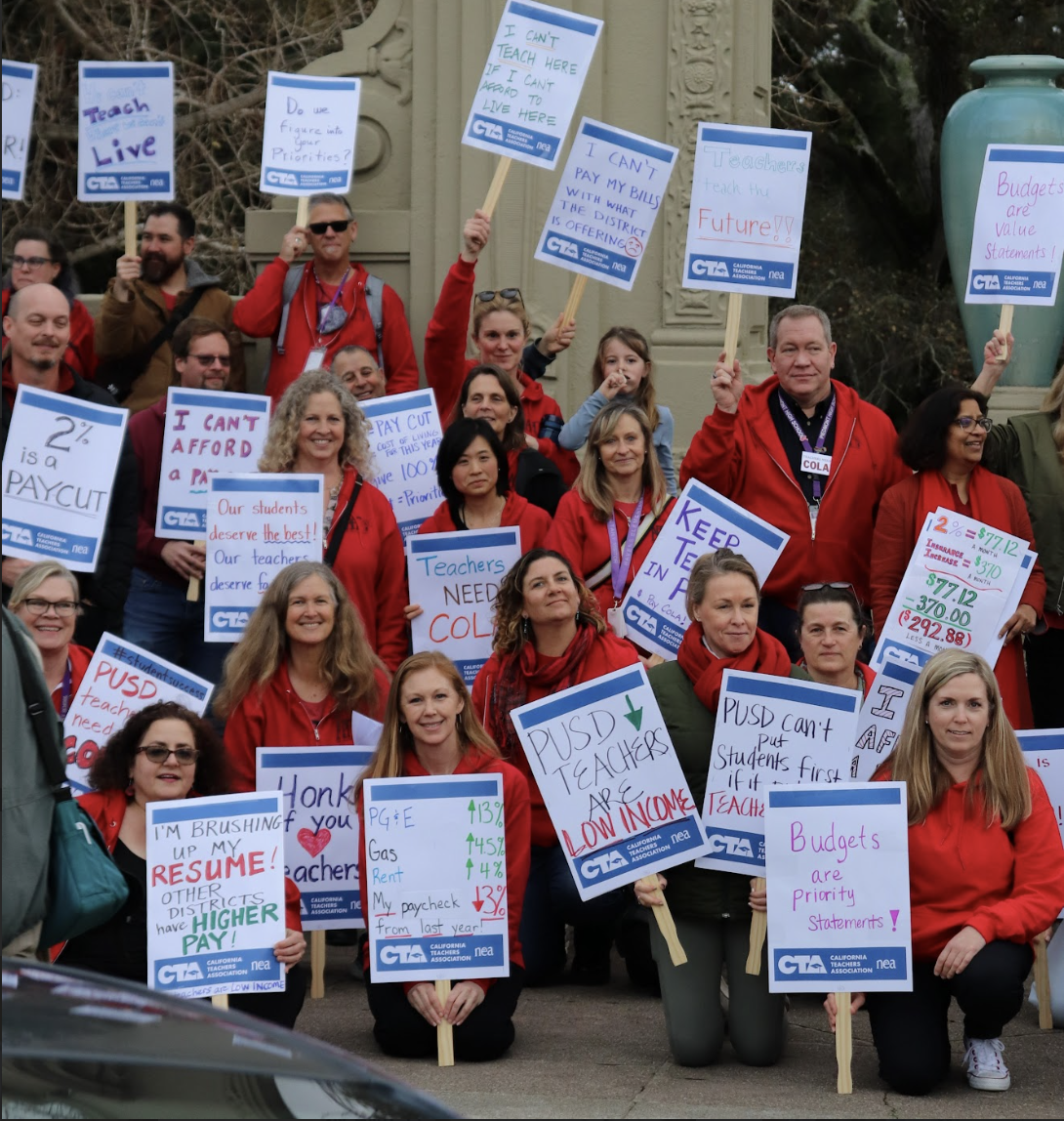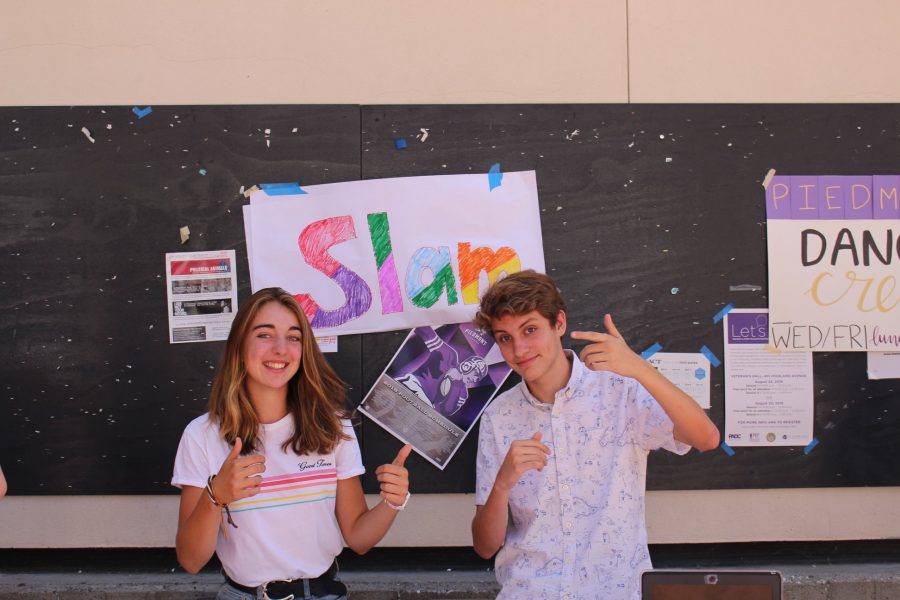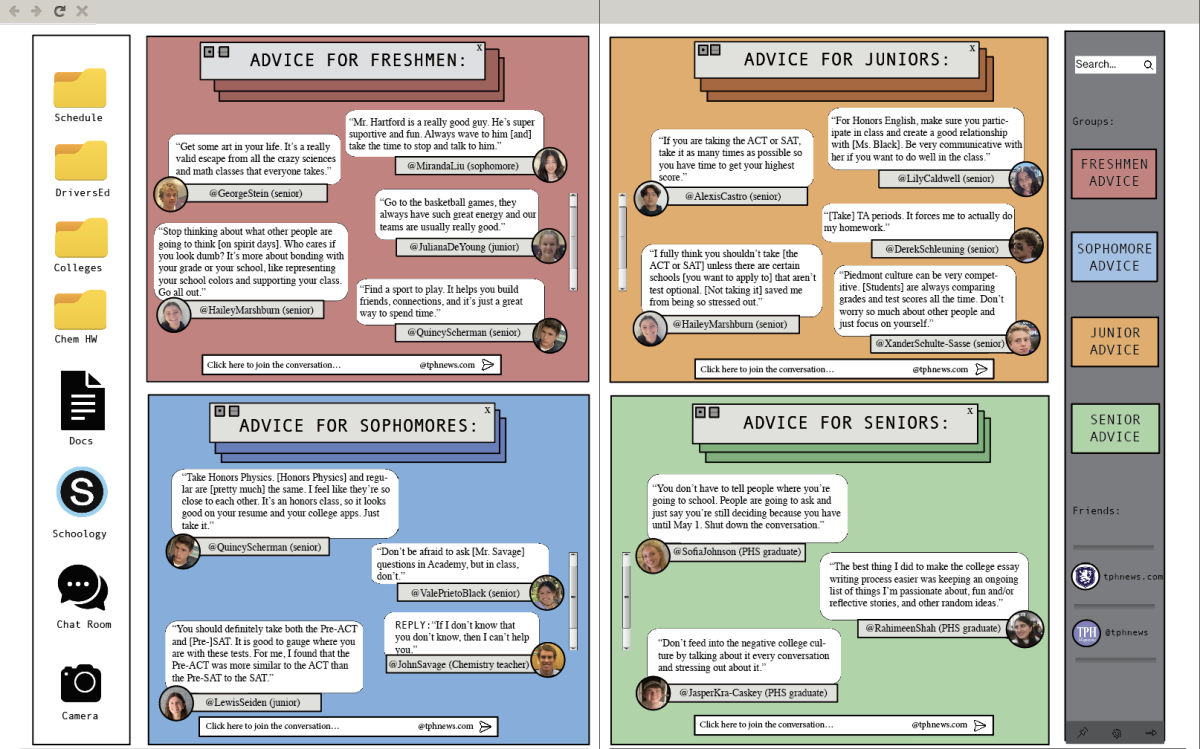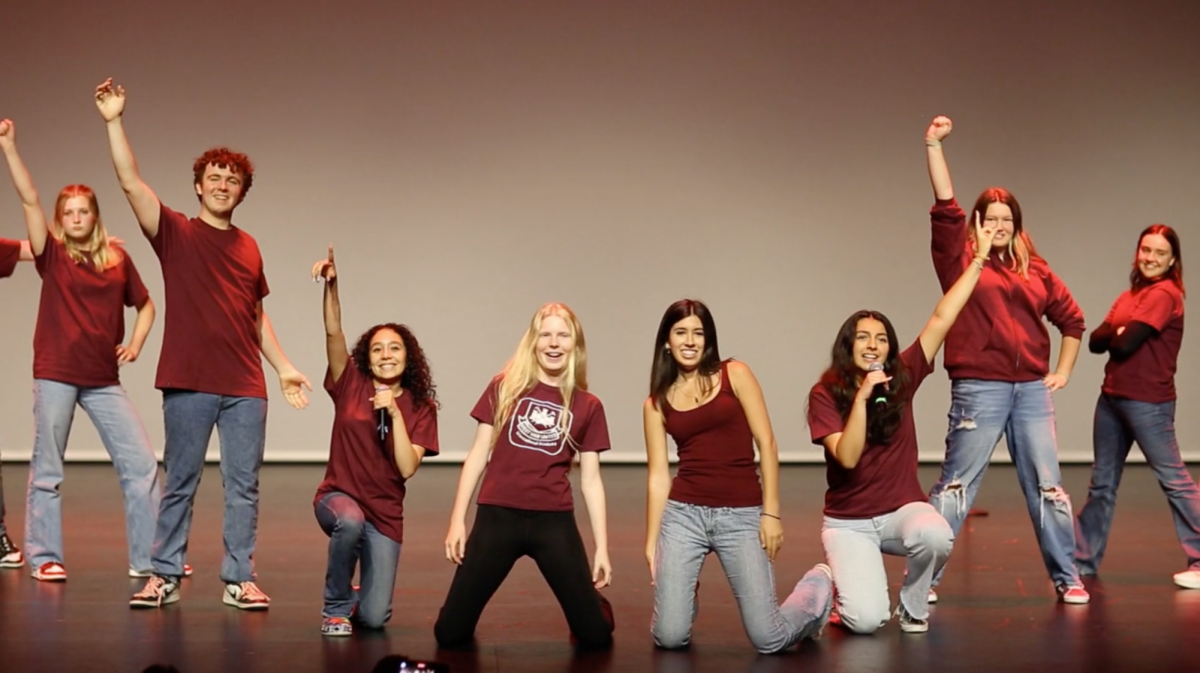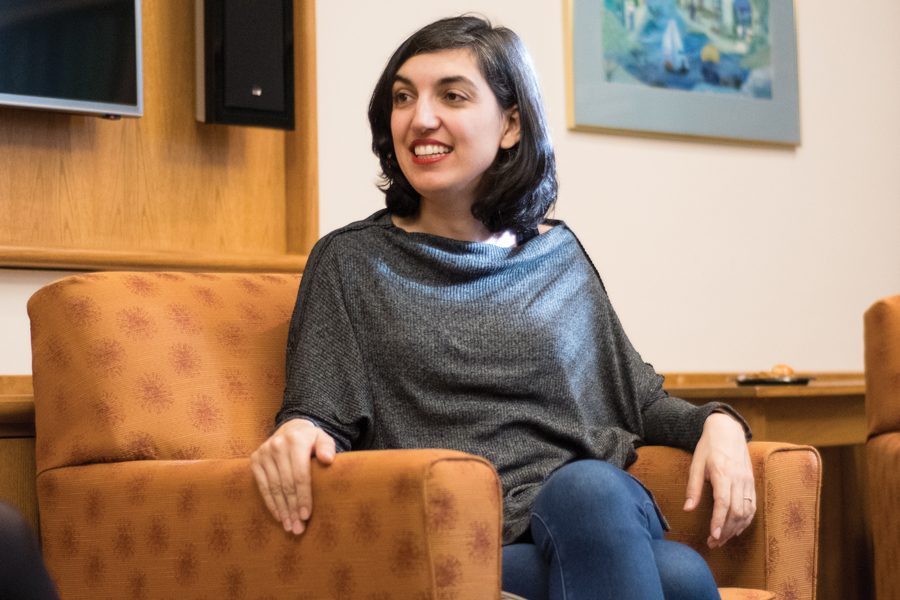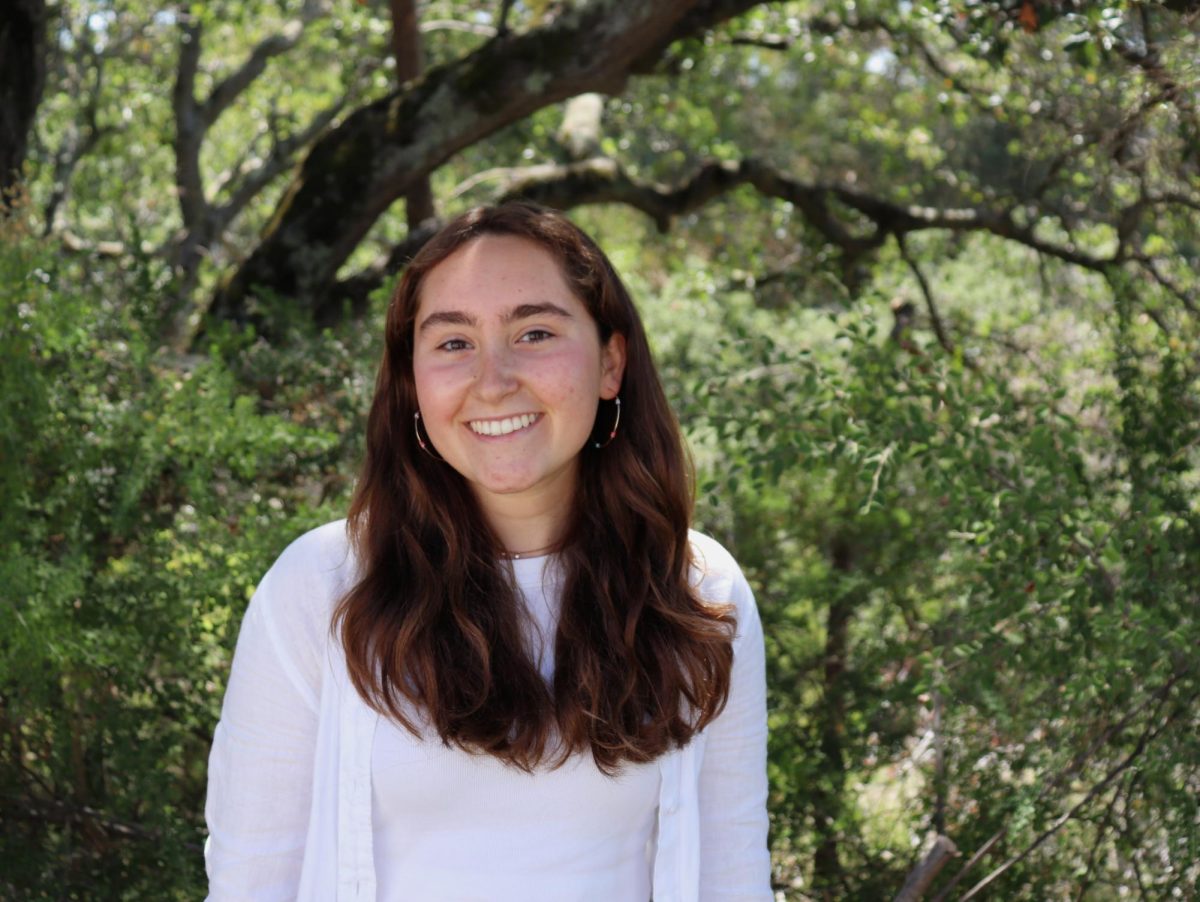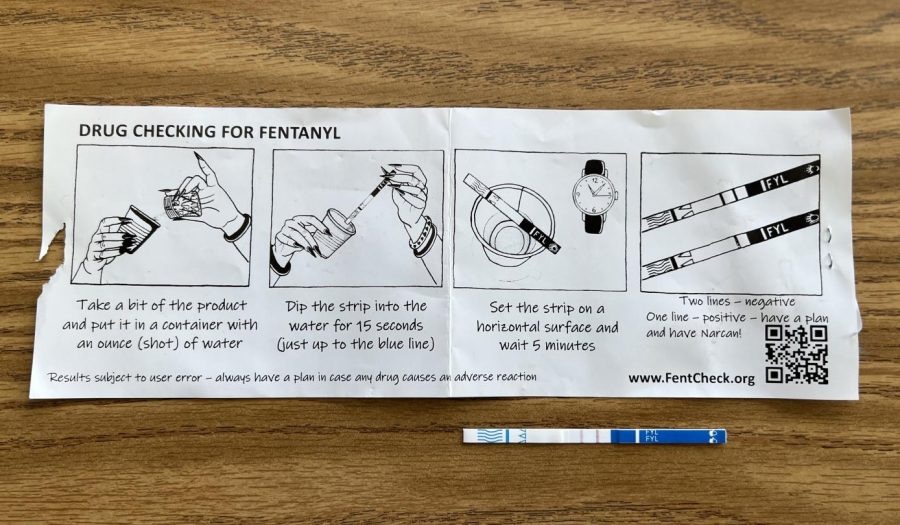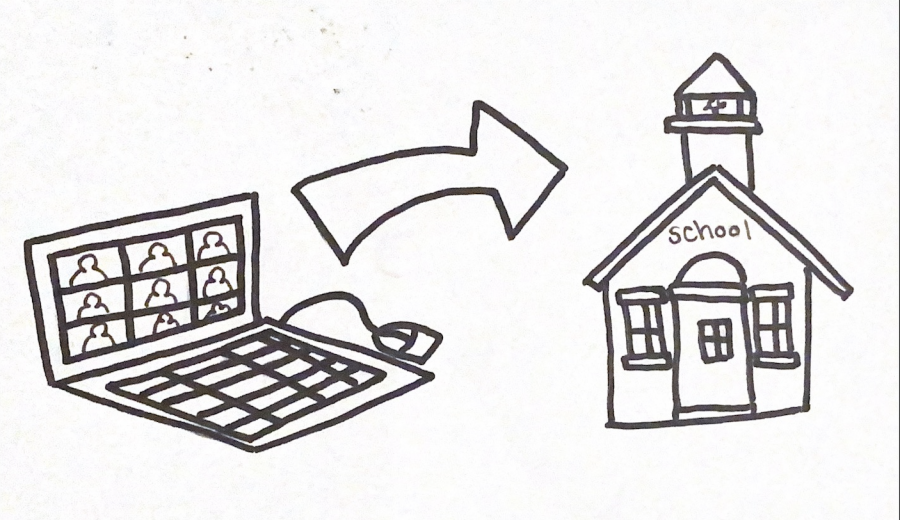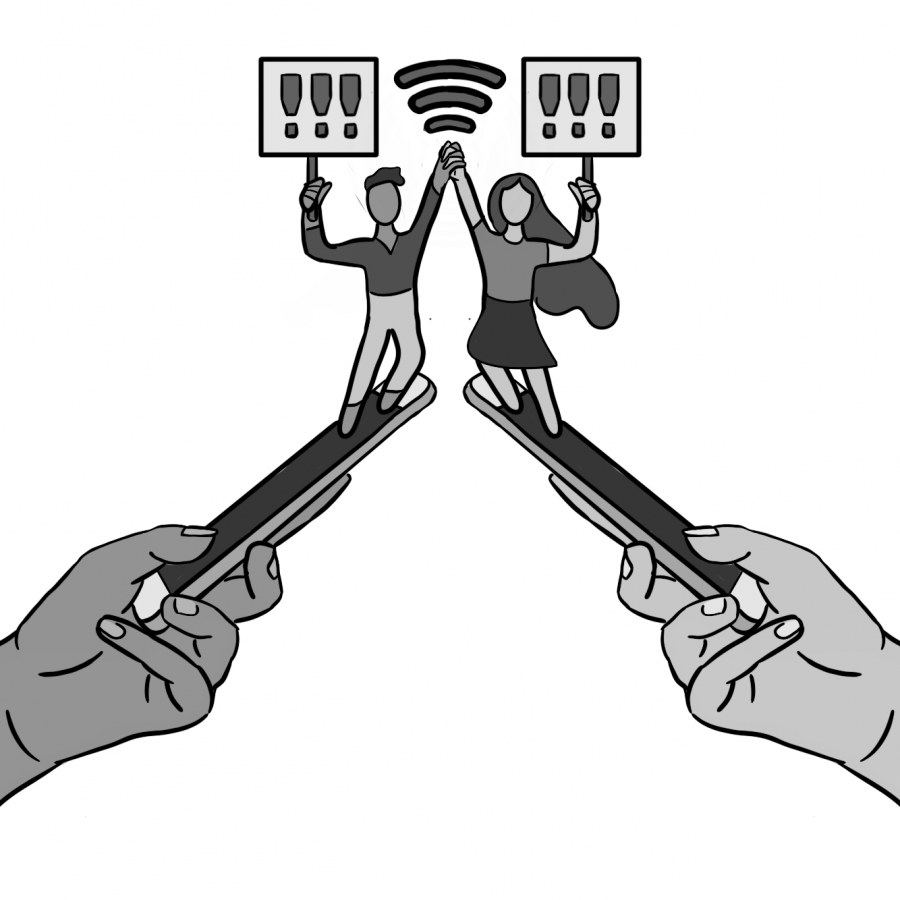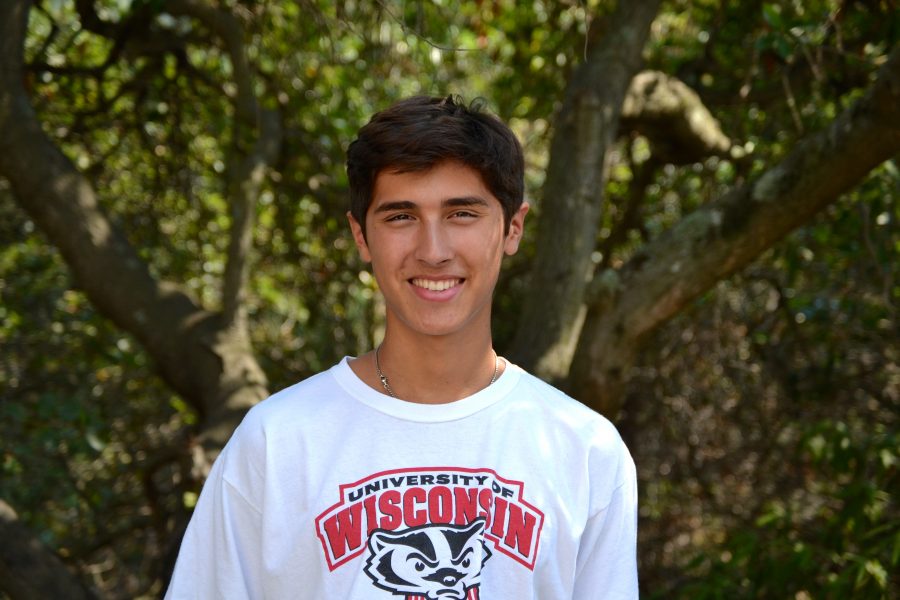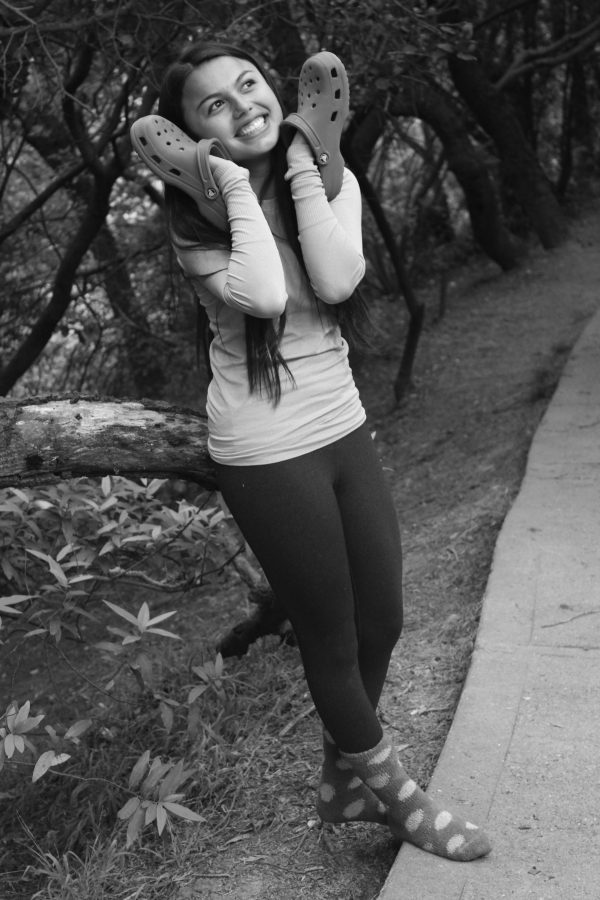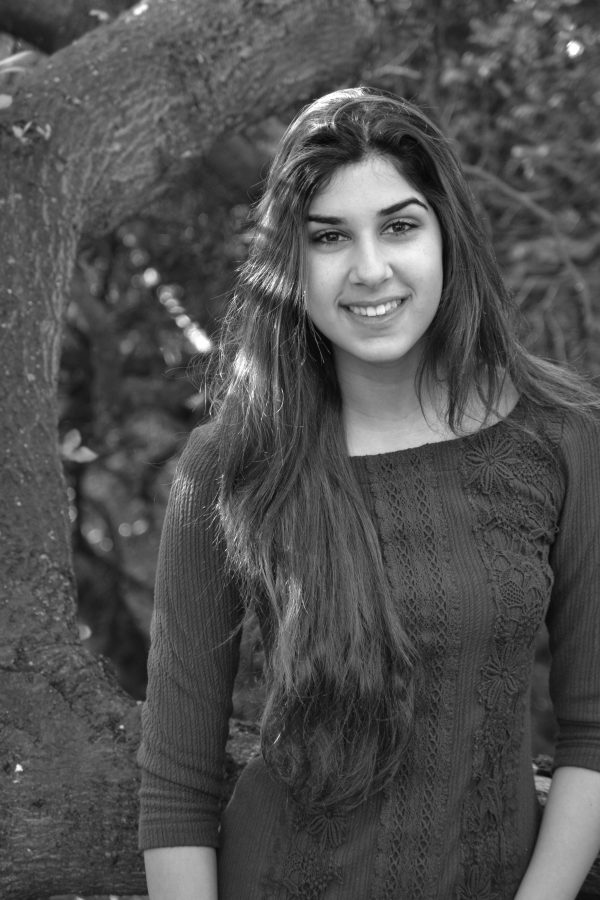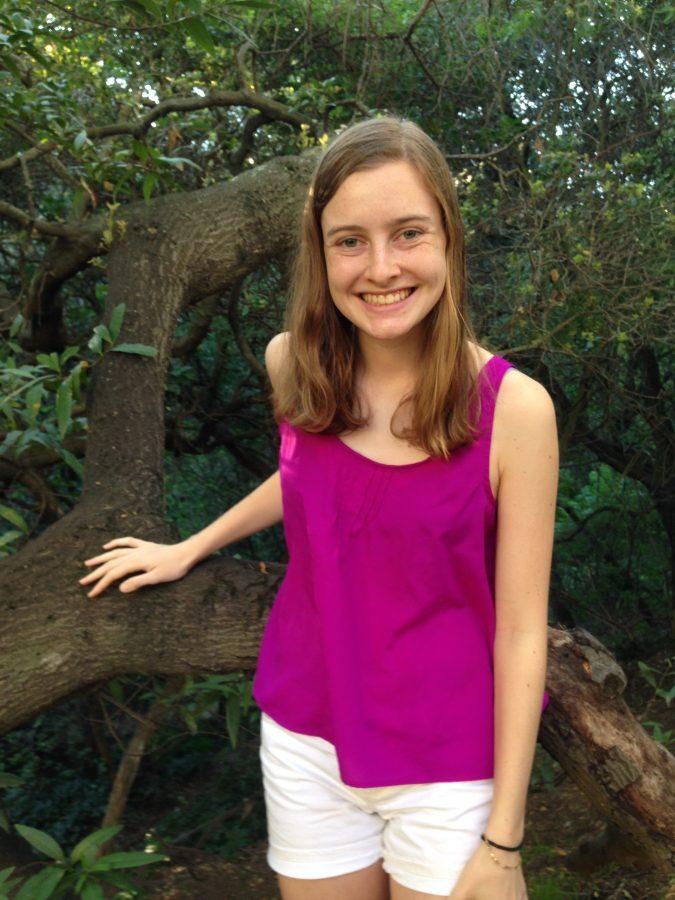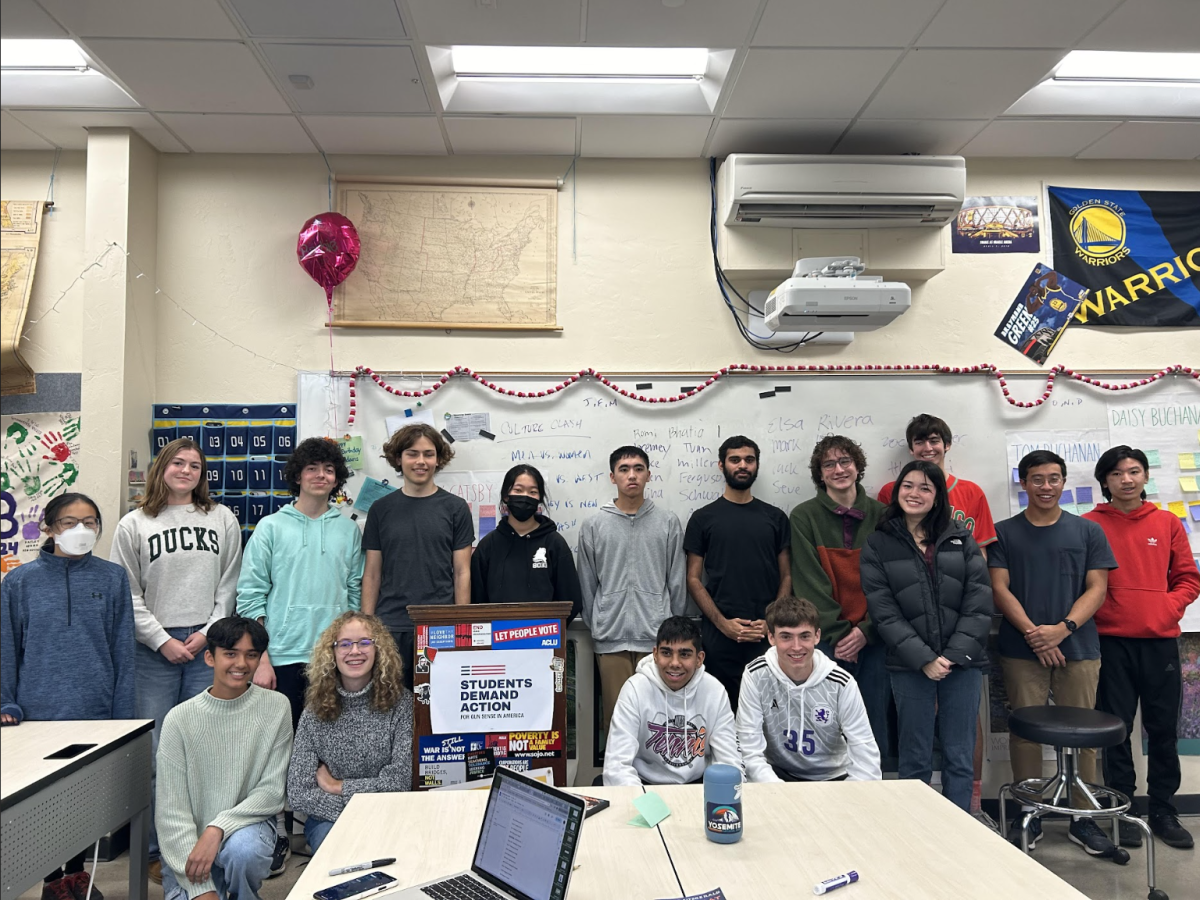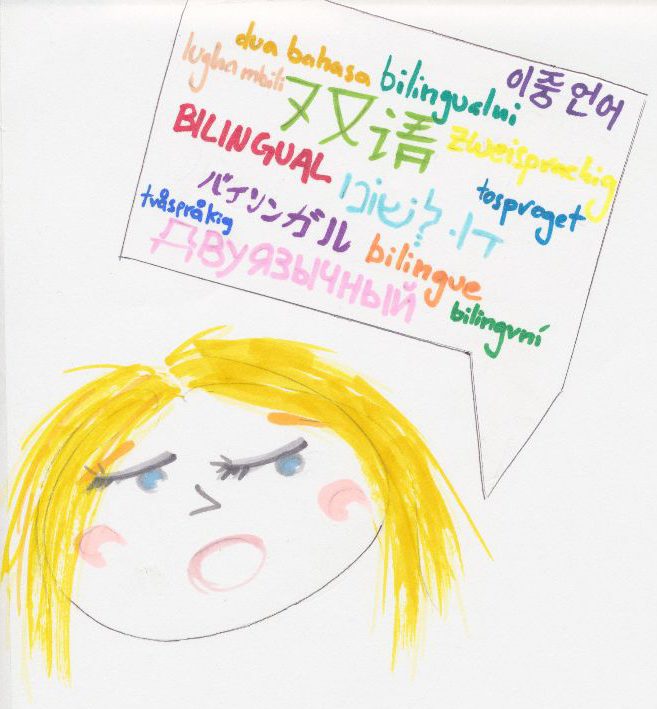 Двуязычный. Bilingvalni. Bilingüe. Bilingual.
Двуязычный. Bilingvalni. Bilingüe. Bilingual.
Even though they only speak one language in the hallways at school, certain students speak a completely different language at home. These multifaceted students have learned to speak a foreign language to connect with their roots that originate from countries around the globe.
Junior Kiana Kasrovi speaks Farsi with her family. Communicating with her grandmother has helped her learn about Iranian culture, customs, and how to make traditional meals, Kasrovi said.
“A lot of things I have learned about life and the culture of Iran is from my grandma, because she grew up there,” Kasrovi said.
Senior Hanna Pajt also learns about Croatian culture and becomes closer with her family by speaking the native language with her mom, sister, and Grandma. Pajt said she learned to speak Croatian before English.
“I think it is the one way we can maintain the culture in our home,” Pajt said. “It is really special to have another language to speak at home because it’s a different form of expression that you share with your family alone.”
Speaking Croatian allows Pajt to completely assimilate into the culture and feel comfortable with her friends when she visits Croatia, Pajt said.
“I am lucky that when I do go to Croatia, I can completely fit in, and have conversations with friends there,” Pajt said. “It is like a second home, a second life completely.”
Similarly to Pajt, because sophomore Kyle So speaks Cantonese, he can hangout with others in Oakland Chinatown.
“I feel like I can be a lot more social and go to different places,” So said. “I can meet new people and I can connect with my extended family more.”
Other perks of being bilingual include the ability to speak about others without them understanding, freshman Audrey Edel said. Being the first generation of her family to be born outside of Russia, Edel learned to speak Russian at a young age to communicate with her grandparents.
“Everyone knows that you use a different language so the other person doesn’t know what are you are saying [about him or her],” So said.
Kasrovi said being bilingual is handy when she forgets someone’s name.
“It is easy in Farsi to talk without any expression so you can totally be talking behind someone’s back,” Kasrovi said. “When I was in [Los Angeles], my Persian friend and I were in an Uber and this one driver was really really creepy, so we talked in Farsi. And they for sure know that we are kind of talking about them because we go back and forth, laugh and then go to English.”
Learning more about her culture, improving her Farsi speaking skills, and realizing the benefits of being bilingual as Kasrovi has gotten older has changed her perspective about being Persian, Kasrovi said.
“When I was really young, I wanted to distance myself from admitting that I am Persian,” Kasrovi said. “I didn’t like when my mom would speak to me in front of my friends. But now, I like that. I like the ability to speak freely and have people think that it is really cool. I am not afraid or ashamed.”
Similarly to Kasrovi, Edel said that she likes speaking Russian for her friends and teaches them simple words, such as “come on,” “hello,” or “goodbye.”
These students learned to speak these foreign languages from their families, which is a different process than being taught in a classroom setting. Edel took French classes at PHS and said in comparison to when she learned Russian, she thought of learning French as work, since it was more difficult to pick up.
“The way that I learned it growing up, I heard other people and I just picked it up and I just exercised it,” said Pajt, who took Spanish classes at PHS. “It is not like I learned how to conjugate vowels first. It was much more organic than school.”
Learning a language at home is less structured and more natural when someone is younger, Kasrovi said, which she learned after watching her younger cousin grow up learning Farsi.
“I have noticed when we sit at tables, he really listens and he says it back in his head,” Kasrovi said. “It just comes, speaking and getting more used to speaking the language.”
Even though Kasrovi said she can not write Farsi, she is fluent enough that if has her own children, she hopes to teach them the language.
“I really want to speak Farsi with my kids, so that is why I try to speak it now,” Kasrovi said. “I am realizing that this is really cool to have, and [I] just have to keep on speaking, to keep myself fluent, and not awkward. Even though I was raised here, I could still teach them.”
In order to keep communicating and connecting with his family, So said he wants to continue improving his Cantonese skills.
“I know some people who don’t speak their language that their parents do, and they can’t connect with their family as much,” So said. “I would really like my language to stay with me forever because that is really all I got to be stuck with the family.”



